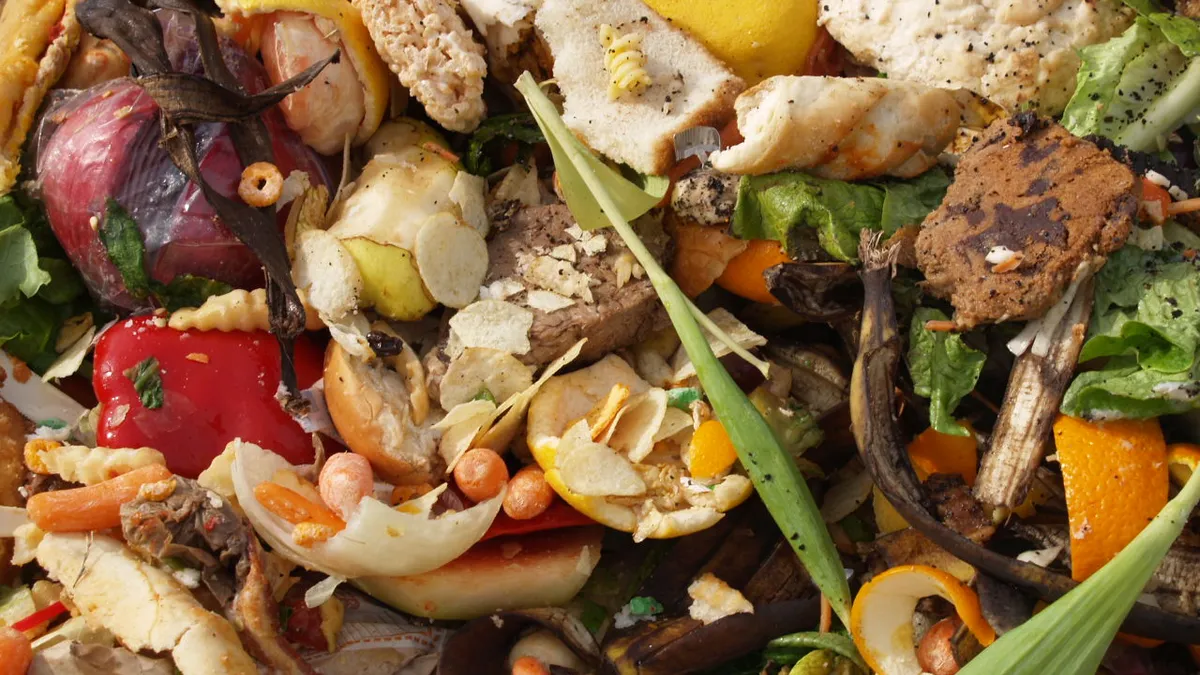Anyone in New York's service industry is well-acquainted with the vast amounts of food waste coming out of kitchens and businesses on a daily basis. Though unless that business is big enough to be covered by the city's organics diversion mandate, they may not know why or how to do anything about it yet. An upcoming city-organized event aims to give those businesses so much information that they'll have no excuse but to start.
On July 25, the NYC Food Waste Fair will bring together professionals from the recycling industry and the food service industry for a "soup to nuts" display of what's possible. Organized by the Foundation for New York's Strongest and the Department of Sanitation (DSNY), the event will feature exhibitions, workshops and demonstrations about every major step of the food recovery process.
The city estimates that local businesses generate more than 650,000 tons of food waste per year, and only about half of that is currently covered by a DSNY diversion rule for large sites. While many smaller hotels, restaurants and caterers are already making efforts to recover or divert food scraps too, the idea can often seem daunting.
“What makes up every business' organic waste is a little different and the priorities for every business might be a little different," said Louise Bruce, senior program manager of DSNY's organics division.
Bruce said the goal is to create a "one-stop shopping moment" for businesses that want information on reduction techniques, collection companies, on-site technologies, compliance and other topics without having to attend multiple events. The list of more than 50 exhibitors includes many of the top local and national companies offering organics solutions, as well as key regulatory agencies.
“We’ll really have the whole spectrum and that I think is new," said Bruce. “I think it’s a rare opportunity to have everyone in one place."
Miriam Garron, sous chef for the Food Network and a member of the event's host committee, echoed the importance of presenting businesses with a comprehensive, practical set of solutions. While Garron has worked to implement food reduction practices, regular recovery pick-ups and ongoing food scrap collection at her production kitchen she said that it's still challenging to keep waste under control.
"Ethical concerns don’t sway businesses, so there is also the financial argument that if you're throwing out food you’re wasting money. It has to make economic sense to not waste food."

Miriam Garron
Sous chef, Food Network
Managing that waste can often require daily adaptations, and what works for her kitchen isn't going to be the same as what works for a restaurant kitchen. Garron said she has attended many interesting events on the topic in recent years, but high-level policy discussions don't always translate well to the realities of running a business.
“Ethical concerns don’t sway businesses, so there is also the financial argument that if you're throwing out food you’re wasting money," she said. “It has to make economic sense to not waste food."
That economic case is a key part of the event's goal and will be a selling point for many of its exhibitors. Gregory Lettieri, CEO of Recycle Track Systems, told Waste Dive that the city will be filming one of his company's regular organics pick-ups this week to show it doesn't have to be hard. The video will be played during the event and feature food scraps being collected from a local restaurant.
“It doesn’t have to be the hotel or the arena. It can be done with the local restaurant in the city and it can be done to stay within their budget for removing waste and recycling," said Lettieri.
This is something the city has worked to demonstrate in the past through events such as last year's "Zero Waste Challenge" and DSNY Commissioner Kathryn Garcia has expressed an interest in updating the city's diversion requirements to include more businesses in the future if sufficient processing capacity can be identified. Questions remain about whether that capacity is there, but DSNY's ongoing expansion of residential organics collection is a sign that they're bullish on the idea.
As the city moves toward ambitious 2030 "zero waste" goals, and considers a potential commercial waste franchise system that could include food diversion requirements like in Los Angeles, this may soon become a reality that businesses can no longer ignore.












